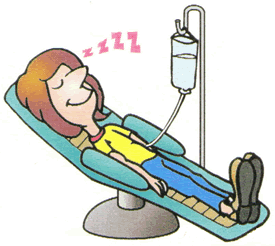 CONTACT US
CONTACT US
Dr Nico Coetzee
Dr Nico Coetzee
Dr Coetzee specializes in Laparoscopic and Open surgery including certain areas of Surgical Oncology
Dr Coetzee specializes in Laparoscopic and Open surgery including certain areas of Surgical Oncology
Dr Coetzee joined the Medi Clinic group at Somerset West in 2009..Previously active and involved in the evolution of Laparoscopic Surgery as a participant and as an educator at Tygerberg Hospital in the Western Cape.
Dr Nico Coetzee
Dr Coetzee specializes in Laparoscopic and Open surgery including certain areas of Surgical Oncology
Dr Nico Coetzee
Dr Coetzee joined the Medi Clinic group at Somerset West in 2009..Previously active and involved in the evolution of Laparoscopic Surgery as a participant and as an educator at Tygerberg Hospital in the Western Cape.
Dr Coetzee joined the Medi Clinic group at Somerset West in 2009..Previously active and involved in the evolution of Laparoscopic Surgery as a participant and as an educator at Tygerberg Hospital in the Western Cape.
Dr Nico Coetzee
What is Conscious Sedation?
This type of sedation induces an altered state of consciousness that minimizes pain and discomfort through the use of pain relievers and sedatives. Patients, who receive conscious sedation usually are able to speak and respond to verbal cues throughout the procedure, communicating any discomfort they experience to the provider. A brief period of amnesia may erase any memory of the procedure.
When is Conscious Sedation Administered?
Conscious sedation is administered in hospitals, outpatient facilities, e.g., ambulatory surgery centers, doctors offices, etc., to facilitate procedures such as the following:
- Breast biopsy
- Vasectomy
- Minor foot surgery
- Minor bone fracture repair
- Plastic/reconstructive surgery
- Dental prosthetic/reconstructive surgery
- Endoscopy (example: diagnostic studies and treatment of stomach, colon and bladder)
Who Can Administer Conscious Sedation?
Conscious sedation is extremely safe when administered by qualified providers. Certified Registered Nurse Anesthetists (CRNAs), anesthesiologists, other physicians, dentists, and oral surgeons are qualified providers of conscious sedation. Specifically trained Registered Nurses may assist in the administration of conscious sedation.
Who Should Monitor Conscious Sedation?
Because patients can slip into a deep sleep, proper monitoring of conscious sedation is necessary. Healthcare providers monitor patient heart rate, blood pressure, breathing, oxygen level and alertness throughout and after the procedure. The provider who monitors the patient receiving conscious sedation should have no other responsibilities during the procedure and should remain with the patient at all times during the procedure.
What are the Side Effects of Conscious Sedation?
A brief period of amnesia after the procedure may follow the administration of conscious sedation. Occasional side effects may include headache, hangover, nausea and vomiting or unpleasant memories of the surgical experience.
What Should Patients Expect Immediately Following the Surgical or Diagnostic Procedure?
A qualified provider monitors the patient immediately following the procedure. Written postoperative care instructions should be given to the patient to take home. Patients should not drive a vehicle, operate dangerous equipment or make any important decisions for at least 24 hours after receiving conscious sedation. A follow-
Questions to Ask About Conscious Sedation
The following is a list of questions patients should ask prior to the surgical or diagnostic procedure:
- Will a trained and skilled provider be dedicated to monitoring me during conscious sedation?
- Will my provider monitor my breathing, heart rate and blood pressure?
- Will oxygen be available and will the oxygen content of my blood be monitored?
- Are personnel trained to perform advanced cardiac life support?
- Is emergency resuscitation equipment available on-
site and immediately accessible in the event of an emergency? - Will a trained and skilled provider stay with me during my recovery period and for how long?
- Should a friend or family member take me home?
Conscious sedation provides a safe and effective option for patients undergoing minor surgeries or diagnostic procedures. The number and type of procedures that can be performed using conscious sedation have increased significantly as a result of new technology and state of the art drugs.
Conscious sedation allows patients to recover quickly and resume normal daily activities in a short period of time
CONSCIOUS SEDATION



